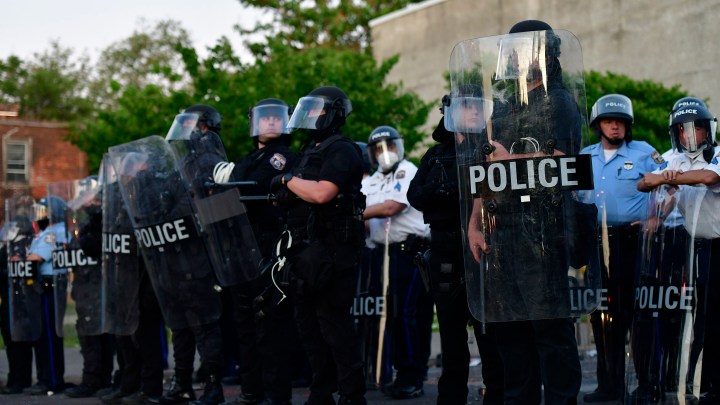
Private insurance companies can play a powerful role in reforming police practices
Private insurance companies can play a powerful role in reforming police practices

If a city can’t get insurance for its police force, they can’t have a police force. Can insurance companies then be a driver of better policing?
Professor John Rappaport at the University of Chicago Law School has studied this, and he says they can. The following is an edited transcript of his conversation with “Marketplace Morning Report” host David Brancaccio.
David Brancaccio: So liability insurance that municipalities take out can be a force for social change?
John Rappaport: It can. When an insurance company writes coverage for police liability, the insurance company puts itself in a position where it improves its bottom line to reduce police misconduct. So just as your property insurer wants to make sure that your building doesn’t burn down, a police liability insurer wants to make sure that the police department it’s insuring doesn’t do things that trigger liability.
Brancaccio: So there is some engagement on the part of the insurance company? It’s not just like, at the end of the term of the policy, we’ll renew you or we won’t? There’s back and forth.
Rappaport: There is. I mean, it varies across insurers. In general, there is engagement. You see the insurance companies participating in the training and education of officers. You see them auditing police departments by actually sending adjusters out to go visit the department. So there are various ways that the insurance companies have for working with the departments they insure to try to reduce the risk.
Brancaccio: Probably makes some people nervous, the idea that this perhaps faceless corporation is having such an important role in public policy.
Rappaport: Yeah, I understand. And there’s a downside here. I mean, I want to emphasize: If insurance companies are not doing a good job at trying to manage the risk, they could actually be making things worse. This is the idea of moral hazard, right? When you get insurance coverage, you drive a little bit less carefully. Do you have to follow up with the kinds of loss prevention or risk management, and only then is there a possibility that you could be actually making things better?
There’s a lot happening in the world. Through it all, Marketplace is here for you.
You rely on Marketplace to break down the world’s events and tell you how it affects you in a fact-based, approachable way. We rely on your financial support to keep making that possible.
Your donation today powers the independent journalism that you rely on. For just $5/month, you can help sustain Marketplace so we can keep reporting on the things that matter to you.

















